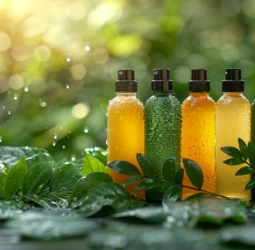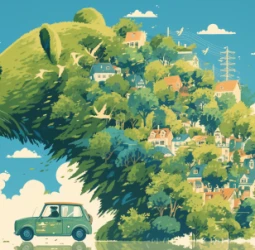Water is one of the most essential resources for life on Earth. It is a precious and limited resource that is often taken for granted. However, with increasing population and climate change, water conservation has become a pressing concern, especially in countries like Brazil where water scarcity is a growing problem. Sustainable water use is crucial for the preservation of this vital resource and to ensure its availability for future generations.
Brazil, known for its lush rainforests and vast rivers, is one of the world's most water-rich countries. However, in recent years, Brazil has faced severe water crises, with some regions experiencing droughts and others facing contamination of drinking water. The root cause of this issue lies in the unsustainable use of water resources. Rapid urbanization, industrialization, and deforestation have put a strain on the country's water sources, leading to their depletion.
To tackle this pressing issue, water conservation efforts have been put in place in Brazil. One such initiative is the National Water Supply and Sanitation Policy, which aims to promote sustainable water use and management in the country. It includes measures such as promoting the use of water-efficient technologies and implementing water-saving practices in industries and agriculture. The policy also emphasizes the importance of educating the public about the value of water and the need to conserve it.
Apart from government initiatives, several non-government organizations in Brazil are also working towards water conservation. One such organization is the Brazil Water Portal, which conducts awareness campaigns and advocates for sustainable use of water resources. Through its "Water Footprint" program, the organization educates people about the amount of water used in various daily activities, such as showering, washing clothes, and brushing teeth, and promotes ways to reduce this consumption.
In addition to these efforts, individuals can also take simple yet effective steps to conserve water in their daily lives. These include fixing leaky faucets, using a bucket instead of a hose for car washing, and turning off the tap while brushing teeth. These small actions, when practiced by everyone, can significantly reduce water wastage and contribute to the conservation of this precious resource.
Moreover, industries and agriculture also play a crucial role in sustainable water use. Industries can implement water-saving techniques such as recycling and reusing water, while farmers can adopt practices like drip irrigation and crop rotation to reduce their water consumption. These measures not only conserve water but also lead to overall sustainability and cost-effectiveness for these sectors.
In conclusion, water conservation in Brazil is a critical issue that requires immediate attention and action. Sustainable water use is the key to preserving this precious resource and ensuring its availability for future generations. It requires the collaboration and efforts from all sectors of society, from individuals to governments and industries. As responsible citizens, it is our duty to conserve water and protect this invaluable resource for our future and the planet's well-being.
Brazil, known for its lush rainforests and vast rivers, is one of the world's most water-rich countries. However, in recent years, Brazil has faced severe water crises, with some regions experiencing droughts and others facing contamination of drinking water. The root cause of this issue lies in the unsustainable use of water resources. Rapid urbanization, industrialization, and deforestation have put a strain on the country's water sources, leading to their depletion.
To tackle this pressing issue, water conservation efforts have been put in place in Brazil. One such initiative is the National Water Supply and Sanitation Policy, which aims to promote sustainable water use and management in the country. It includes measures such as promoting the use of water-efficient technologies and implementing water-saving practices in industries and agriculture. The policy also emphasizes the importance of educating the public about the value of water and the need to conserve it.
Apart from government initiatives, several non-government organizations in Brazil are also working towards water conservation. One such organization is the Brazil Water Portal, which conducts awareness campaigns and advocates for sustainable use of water resources. Through its "Water Footprint" program, the organization educates people about the amount of water used in various daily activities, such as showering, washing clothes, and brushing teeth, and promotes ways to reduce this consumption.
In addition to these efforts, individuals can also take simple yet effective steps to conserve water in their daily lives. These include fixing leaky faucets, using a bucket instead of a hose for car washing, and turning off the tap while brushing teeth. These small actions, when practiced by everyone, can significantly reduce water wastage and contribute to the conservation of this precious resource.
Moreover, industries and agriculture also play a crucial role in sustainable water use. Industries can implement water-saving techniques such as recycling and reusing water, while farmers can adopt practices like drip irrigation and crop rotation to reduce their water consumption. These measures not only conserve water but also lead to overall sustainability and cost-effectiveness for these sectors.
In conclusion, water conservation in Brazil is a critical issue that requires immediate attention and action. Sustainable water use is the key to preserving this precious resource and ensuring its availability for future generations. It requires the collaboration and efforts from all sectors of society, from individuals to governments and industries. As responsible citizens, it is our duty to conserve water and protect this invaluable resource for our future and the planet's well-being.



 dev1
dev1















